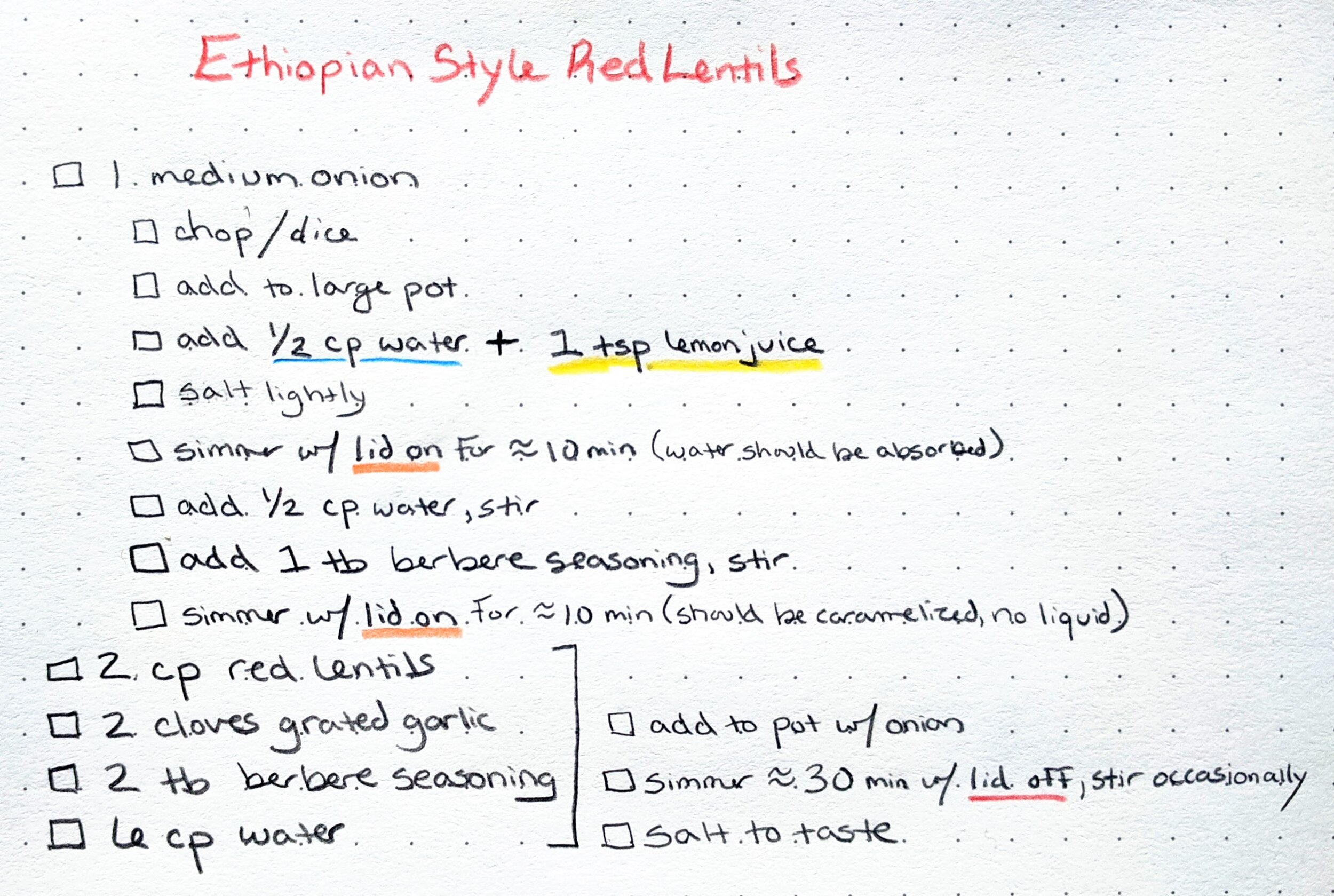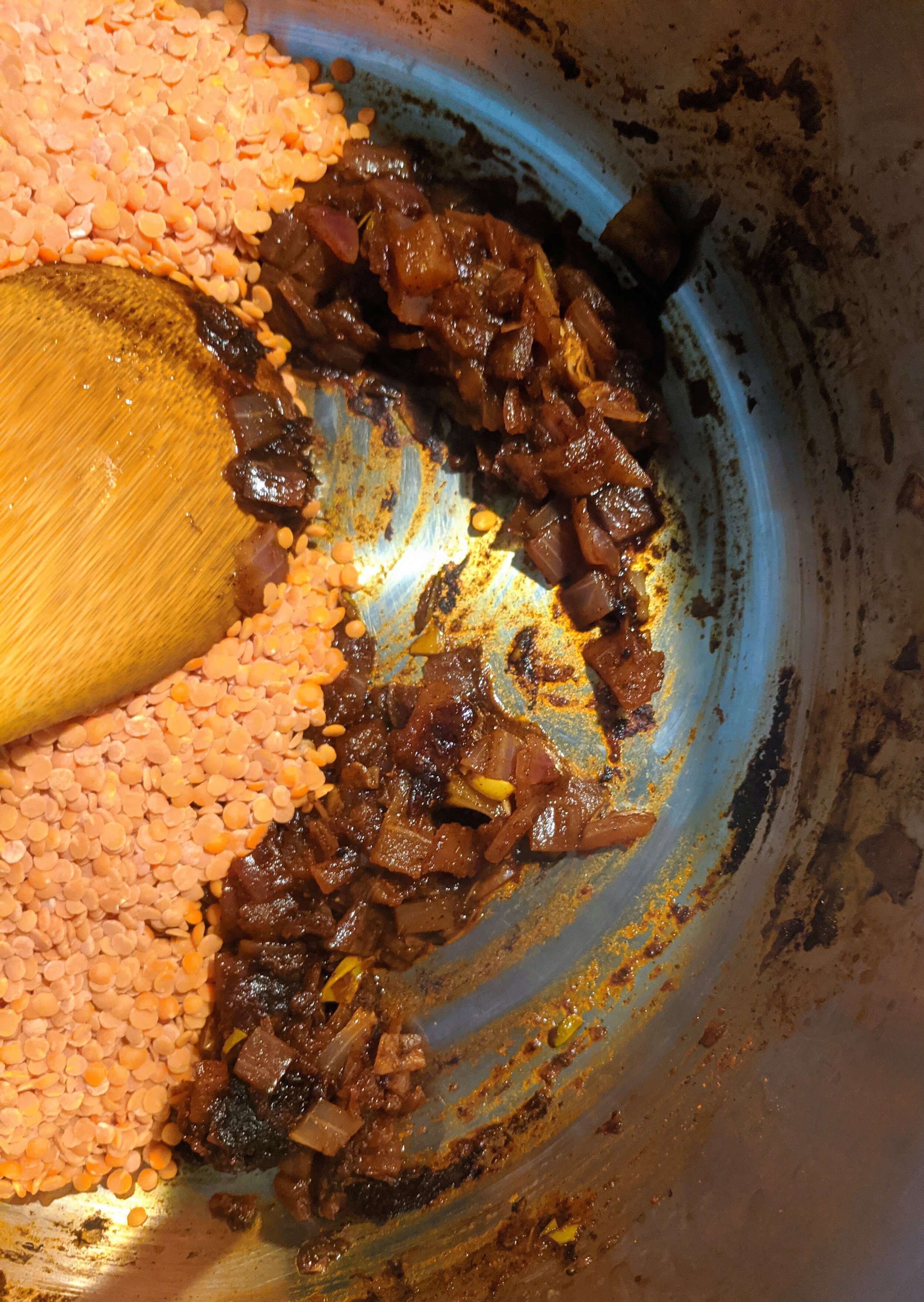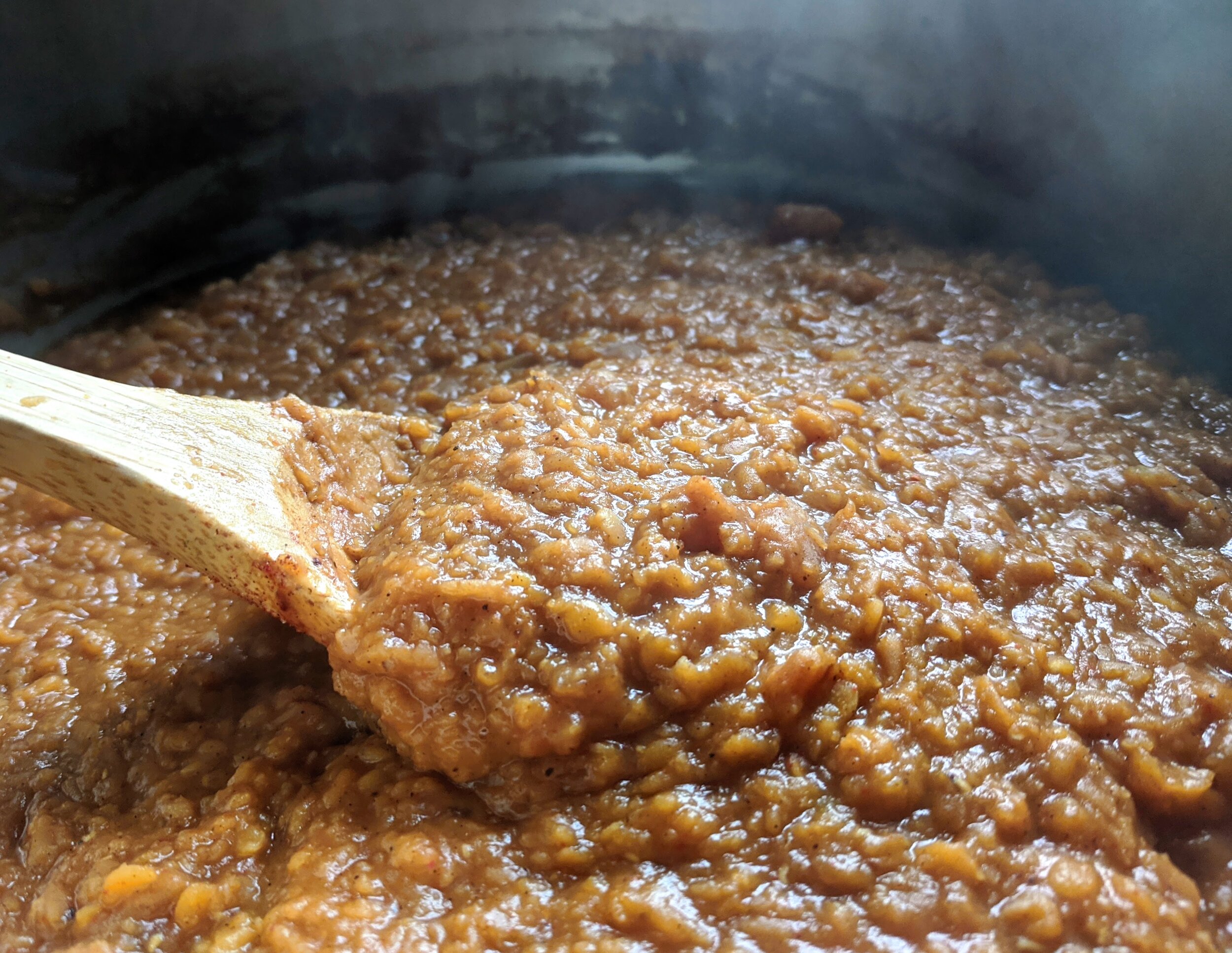Ethiopian Style Red Lentils Recipe (Q's Favorite)
An optional addition would be a 1/4 crushed tomatoes when you throw in the lentils. Not needed, but if they are at-hand it adds to the flavor and also gives you some good lycopene.
4.1.2020
I first had the perfection that is berbere spice the summer of 2005, and it shook my whole dang world. I’d gone to DC to see a friend’s band, it was suggested we try some Ethiopian food while in the area, I love trying new flavor combinations, and Boy Howdy am I grateful I took the advice because it became one of my favorite things on this planet. Berbere is a savory, spicy, earthy, sweet, and gingery spice mixture and it is found in Ethiopian and Eritrean dishes.
When you can: If you have an Ethiopian or Eritrean restaurant near you, treat yourself to some authentic mastery. If your budgets are like ours and you want Ethiopian food, but can’t afford to be eating out, this is my super inexpensive way to get some of those flavors on the cheap, with items I usually have on hand. (Because at this point: this house is never out of berbere seasoning.)
You could mix your own berbere spice (if you’re allergic to nightshades —like some souls I love— just leave out the peppers and maybe substitute turmeric), but we usually buy ours. The cheapest option (and found right at Wegmans for under $4) is this McCormick brand, but there are also some fun Etsy options that are more authentic.
Aside from the berbere, the rest of the ingredients are pretty standard: water, red lentils, lemon juice, salt, garlic, and a medium sized onion. You don’t even need oil, because this is the whole-foods version: completely heart-healthy.
Q loves this so much he requests this often and I happily oblige because lentils are:
full of fiber (Why is that good? It is happy fuel for his microbiome, beneficial to his whole digestive system, regulates blood sugars, and a diet high in fiber reduces his risk of heart disease, diabetes, and cancer.)
pumped with polyphenols (What are they? "Polyphenols have antioxidant and anti-inflammatory properties that could have preventive and/or therapeutic effects for cardiovascular disease, neurodegenerative disorders, cancer, and obesity.”)
bursting with beta carotene (What does that do? “The human body converts beta carotene into vitamin A (retinol) – beta carotene is a precursor of vitamin A. We need vitamin A for healthy skin and mucus membranes, our immune system, and good eye health and vision.”)
Start with a medium onion (chopped, diced), top it with 1/2 cup water, 1tsp lemon juice, and some salt.
Save the red lentils for a bit and get out a grate to start grating that garlic.
This is what it looks like after 10 minutes on medium heat, and before we’ll add more water and the seasoning.
You won’t miss the oil because this dish is flush with flavor.
After about ten minutes on medium heat, the onions will have absorbed the first 1/2 cup of water.
Add in another 1/2 cup of water and 1 tbl of the berbere. Stir. Cover.
If you feel like adding oils, now would be a fine time to add some in, but it's not needed. 👍🏽💚
I got distracted and forgot to stir the onions mid-way or to photograph for you what they looked like before I added to lentils. (Life! It happens :-) )
Take note: be nearby to check on them and see if they’re getting browned earlier than 10 minutes (which I obviously didn’t and regretted :-) )
When the onions are browned enough to your liking: add in 2 tbl berbere, the lentils, 6 cups of water, and the freshly grated garlic. Stir. Let it simmer uncovered for 20-30 minutes. Stir occasionally.
They are done when they get to this consistency (about 30 minutes)
Salt to taste!
Until were have injera (Ethiopian bread) in the house again (and I’ll be testing recipes for that soon), we tend to eat these lentils next to salads. Today, this is what Q and I had for lunch: kale and quinoa salad, quick-pickled red cabbage, butternut squash, easy avocado, (some buffalo seasoned hempeh on mine), and these delicious (heart-healthy/disease preventing) lentils. :-)
Live and feast kindly, folks!












